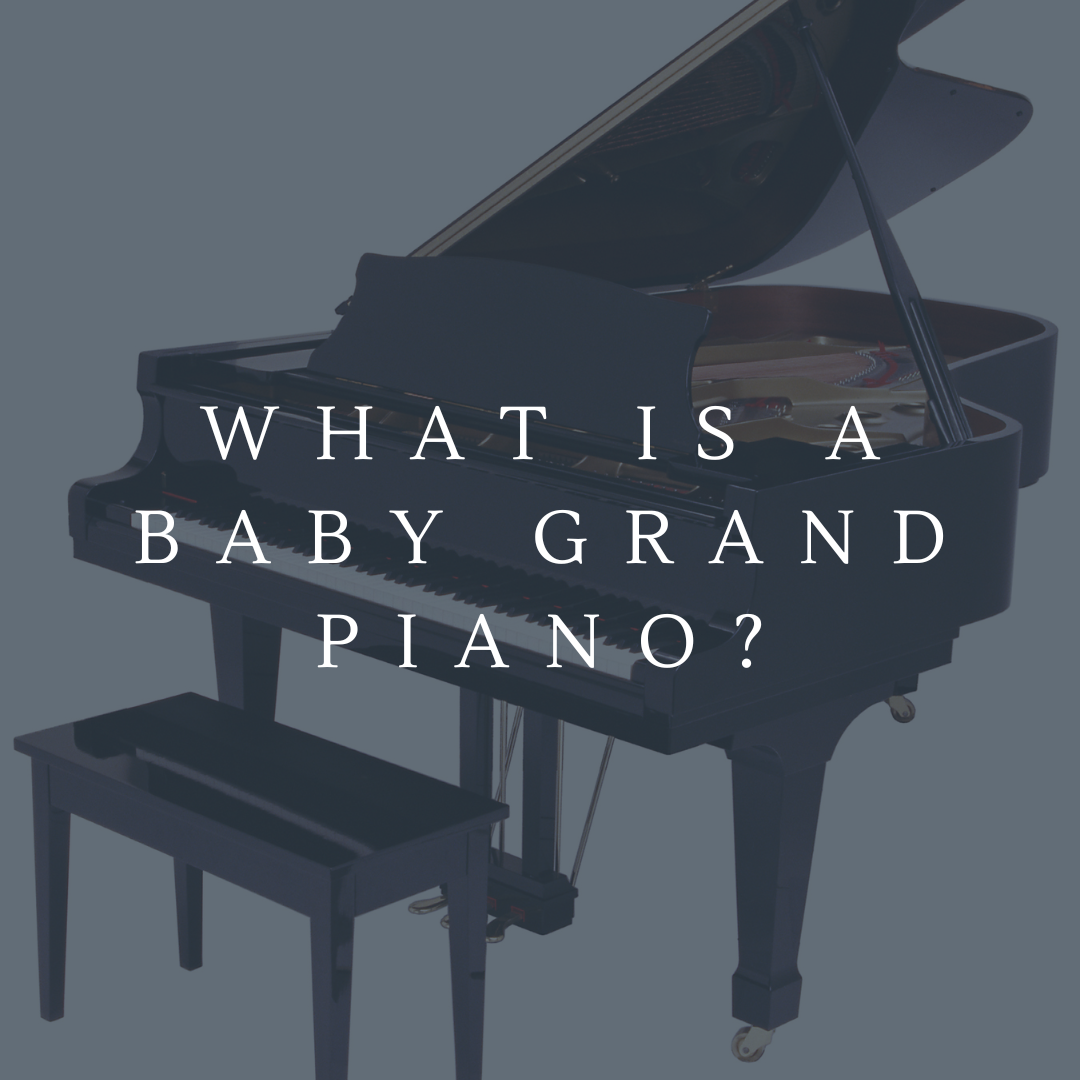
Most people have used the term “Baby Grand” Piano at one time or another, but does anyone really know what that means? Or if there is even such a thing?
Through the years hundreds of sizes, types, and brands of pianos have been called baby grands. And they are probably all correct because there isn't a definitive description of what a baby grand really is.
If you google the term, you get a plethora of descriptions of what size and design parameters of what constitutes a baby grand. Because there is no definitive definition you can believe whatever one you believe to be true, because it's only a name anyhow.
Confusing? You bet.
Many stories on how the term originated floating around out there but nobody knows for sure where it came from.
My favorite is that it was a cute term used by a piano company to promote smaller grands and make them seem less imposing and more private home size friendly then their big brother, the Grand Piano.
It's as good as any of the origin stories, and I'm sticking with it.
In any case there are smaller grand pianos and larger grand pianos and what you call them doesn’t matter, but size does. Larger pianos usually sound and play better than smaller ones.
But the brand and quality level of any size piano changes the playing field.
One thing you will hear is that piano tuners prefer to work on the larger pianos dismissing the smaller Baby Grand Pianos. That came about because the smaller pianos are the ones, they usually build to a fit a price point not a quality level (this is not always the case).
Just remember this: No matter what you call the smaller instruments They are all technically Grand style pianos, no matter the size.

Music has long been recognized as a powerful tool for emotional and creative growth. Among all musical instruments, the piano stands out as a gateway to self-expression, cognitive development, and emotional well-being. Whether you're a beginner learning your first melody or a seasoned pianist composing intricate harmonies, playing the piano fosters holistic development in ways that go beyond the keys.

At just 20 years old, pianist Madison Yan is already enchanting audiences with a blend of technical brilliance, emotional depth, and fearless authenticity. We had the chance to sit down with Madison after her standout performance at Northwest Pianos—an event so packed with anticipation, we had to turn people away at the door. (Don’t worry—we’re working on a return performance!)

Moving a grand piano is no easy task. Its size, weight, and delicate components make it one of the most challenging items to transport. Without proper care, you risk damaging the piano’s structure, internal mechanisms, and finish, or worse, injuring yourself or others in the process.